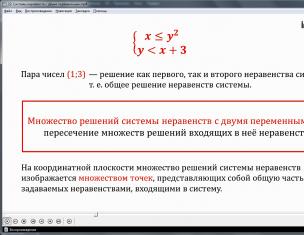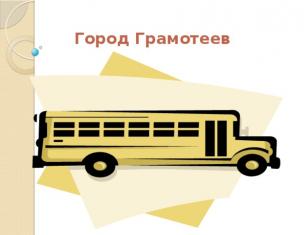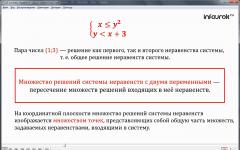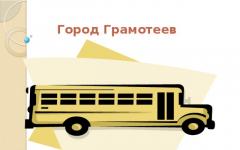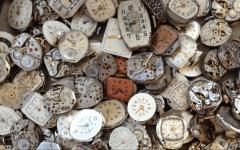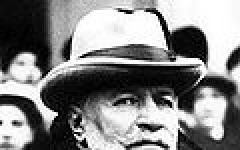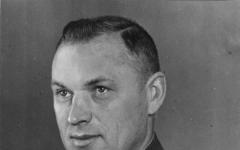A studio school opened at the Moscow Art Theater in 1943 on the initiative of Vladimir Ivanovich Nemirovich-Danchenko, one of the founders of the Moscow Art Theater. On March 21, 1943, the leaders of the Moscow Art Theater met at Vladimir Ivanovich’s apartment: “I invited you to talk about school.”

V. I. Nemirovich-Danchenko
On April 26, the Moscow Art Theater School was named after Nemirovich-Danchenko.
The basis for teaching acting at the School was the Stanislavsky system.
Many famous actors are graduates of the Moscow Art Theater School: class of 1949 - Oleg Efremov, 1950 - Alexey Batalov and Liliya Tolmacheva, 1951 - Oleg Borisov, 1962 - Gennady Bortnikov, Vera Alentova (graduated in 1965), Tatyana Vasilyeva, Nikolai Karachentsov (graduate 1967), Pavel Kaplevich, Mikhail Efremov, Evgeny Mironov, Vladimir Mashkov, Irina Apeksimova, Yulia Menshova, Andrey Panin, Alexander Lazarev-son; Sergey Bezrukov.
From the very foundation of the School, leading masters of the Art Theater taught here. This tradition has been preserved today: most of our teachers are graduates of the Mkhatov School themselves, students of Stanislavsky’s students.
Federal State Educational Institution of Higher Professional Education "School-Studio (Institute) named after. Vl. I. Nemirovich-Danchenko at the Moscow Art Theater. A.P. Chekhov"
Announces admission of students in 2010 to the Acting Faculty
by specialty: "Acting"
qualification: "Artist of dramatic theater and cinema"
(full-time training)
The acting department trains drama theater and film actors. The duration of study at the Acting Faculty is 4 years.
In 2010, the course is recruited by: Honored Artist of the Russian Federation, Professor I. Ya. Zolotovitsky, Professor S. I. Zemtsov.
Applicants to the Acting Faculty from May 3(in May on Mondays at 13:00) until June 25(in June on Mondays, Wednesdays and Fridays at 13:00) preliminary qualifying auditions (three rounds). For qualifying auditions, prepare a program: 3-4 poems, 3-4 fables and 2-3 excerpts from prose.
Registration for qualifying auditions is carried out on audition days on a first-come, first-served basis. Must have with you passport. There is no pre-registration for auditions.
Past three rounds of qualifying auditions are allowed to take entrance examinations. Before the entrance examinations, applicants submit the following documents to the Admissions Committee:
- application addressed to the rector;
- document proving identity and citizenship (passport);
- document on secondary (complete) general or secondary vocational education (or a certified copy, and before enrollment - the original);
- six photographs (3x4);
- military ID or registration certificate;
- Unified State Examination certificates in Russian language and literature (or a certified copy, and before enrollment - the original).
Entrance tests:
- Russian language. Unified State Exam.
- Literature. Unified State Exam.
- Additional entrance test for creative orientation - specialty exam“Acting Art” is held on July 1, 2010 and consists of four sections:
- performance of literary works (excerpts from prose, poems, fables;
- checking music data;
- voice and speech testing;
- plastic data check.
The exam results are assessed on a 100-point scale.
Dormitory accommodation is not provided during admission.
.The duration of study at the Acting Faculty is 4 years, at the Production Faculty - 5 years. The form of training is full-time.
Here, all the corridors are hung with portraits of graduates. And every face is a legend. For 70 years, the Moscow Art Theater School-Studio has trained many recognized stage masters.
Whatever the name, it's the planet. Oleg Pavlovich Tabakov is young, everyone is young. Lev Durov, Tatyana Lavrova, Tatyana Doronina... Well, no matter how proud you are!
- "Satyricon" - half of the troupe are our graduates, "Sovremennik", naturally, "Gogol Center" by Kirill Serebryannikov - these are our guys, our graduates
But these Moscow Art Theater students are no longer awarded portraits, but busts. Vladimir Nemirovich-Danchenko was the initiator of the founding of the legendary university, where teaching was conducted according to the Stanislavsky system.
Anatoly Smelyansky, President of the Moscow Art Theater School:
The date of birth is passport-wise, chronologically recorded, in the spring of 1943 in a letter from Vladimir Ivanovich Nemirovich-Danchenko to the government, where he asked the government, during the war, to ensure the future of the Art Theater, including the opening of a studio school
This is a unique watch, given to us by a graduate of the Studio School for its 60th anniversary, where all the graduates of the acting department for 60 years are engraved.
However, the Moscow Art Theater School-Studio is not alive and famous for its actors alone. With particular pride, the rector talks about the students of the scenography department and demonstrates their work to journalists.
Igor Zolotovitsky, rector of the Moscow Art Theater School, Honored Artist of the Russian Federation:
These costumes are made of paper. It's all made from paper by hand. The authors are students.
And finally, the third faculty is production. It is headed by the director of the Bolshoi Theater Vladimir Urin.
Vladimir Urin, director of the Bolshoi Theater, head of the department of management and production at the Moscow Art Theater School:
The system is built exactly the same as in a creative university - each course has its own master and these are all people who are involved in real theater today. The fact that the production department exists today is very important. Because when a person over 60 years old is appointed to the post of director of the Bolshoi Theater, it means that we are not doing well with the managers and producers we have.
The new book, released for the anniversary, tells the best story about the amazing atmosphere that has reigned in the legendary university for decades, about the actors’ friendship. Each course since 1943 is presented in detail here.
Anatoly Smelyansky, President of the Moscow Art Theater School:
This book is called “Moscow Art Theater School-Studio. Family album." He is truly a family dog and weighs 2.5 kilograms. We have a very large family - the whole theatrical Russia.
If everything fits in the book, then there is a catastrophic lack of space in the university itself. And among the top-priority plans, the new rector names an increase in area.
Igor Zolotovitsky, rector of the Moscow Art Theater School, Honored Artist of the Russian Federation:
We don't have enough space. We are suffocating in a small space. We need large halls for movement disciplines, we need a modern educational theater of the 21st century. It’s a cozy place for us, an educational theater, as they say, a place of prayer, but it’s small, it doesn’t fit our plans.
On November 11, in honor of the anniversary of the School, a festive concert will be held on the Main Stage of the Moscow Art Theater, where graduates from different years will be invited, including 4 graduates from 1947. However, Igor Zolotovitsky apologizes in advance: the hall will not be able to accommodate all the Moscow Art Theater participants and promises: the next anniversary evening will be held at the stadium.
Tatiana Larionova, Maxim Zaitsev, Dmitry Vinogradov
On November 11, the Moscow Art Theater School solemnly celebrates its 70th anniversary, and on this day we remember the most famous acting dynasties of its graduates.
Vysotsky
The legendary Soviet poet and actor Vladimir Vysotsky proved that being an actor is a calling. After school, at the insistence of his relatives, he entered the mechanical faculty of the Moscow Institute of Civil Engineering. Kuibyshev, but after the first semester he realized that this was not what he wanted to do, and became a student in the acting department of the Moscow Art Theater School.
 Photo: Mikhail Klyuev
Photo: Mikhail Klyuev
He later married Lyudmila Abramova, who bore him two children. The youngest of them, Nikita Vysotsky, also followed in his father’s footsteps and entered the Moscow Art Theater School, after which he worked in several Moscow theaters, acted in films and organized his own theater. Now he is the founder and executive director of the Vladimir Vysotsky Charitable Foundation. In memory of his father, Nikita Vysotsky wrote the script for the film “Vysotsky. Thank you for being alive,” which was released in 2011.
 Photo: PersonaStars.com
Photo: PersonaStars.com
Bezrukovs
The famous Russian actor Sergei Bezrukov was born into the family of the Satire Theater actor Vitaly Bezrukov. In his childhood and youth, he really loved being at his father’s work and always dreamed of following in his footsteps, but Bezrukov Sr. was very wary of this idea. However, the son proved that there is no point in doubting his talents. After graduating from high school in 1990, he entered the Moscow Art Theater School-Studio in the department of theater and film actor and graduated with honors, like his father. Now Sergei Bezrukov has many famous roles in theater and cinema, as well as awards and film awards, the main one of which is title of People's Artist of the Russian Federation.
 Photo: Mikhail Klyuev
Photo: Mikhail Klyuev
Tabakovs
The current artistic director of the Moscow Art Theater. A.P. Chekhov Oleg Tabakov was born into a family of doctors, but decided to devote his life to theater and cinema. Now he successfully combines the artistic direction of two theaters, work at the Moscow Art Theater. A.P. Chekhov and the Theater under the direction of O. Tabakov as an actor, heading the department of acting skills at the Moscow Art Theater School, teaching students and directing abroad, producing and filming. From his first marriage to actress Lyudmila Krylova, he has two children, Anton and Alexandra Tabakov, who also graduated from the Moscow Art Theater School and worked in the theater under the direction of their father, but then left the acting profession. Now Alexandra works on radio and television as a presenter, and her brother Alexander is in the restaurant business.
 Photo: KINO-TEATR.RU
Photo: KINO-TEATR.RU
Moscow Art Theater School: admission rules, entry requirements, required documents, program, list of required literature, tuition fees, contacts
About the Moscow Art Theater School, School-studio named after Vl.I. Nemirovich Danchenko at the Moscow Art Academic Theater named after A.P. Chekhov. Opened in 1943 on the initiative of Vl.I. Nemirovich-Danchenko. In the summer of 1943, the first competition for admission to the Moscow Art Theater School was held in the theater. The examiners were Moskvin, Kachalov, Knipper-Chekhova. The official opening of the school took place October 20, 1943.
The basis of teaching was the Stanislavsky system, designed to instill in the actor a sense of organic truth, spiritual creativity in order to instill in him a keen sense of living life on stage.
IN 1956 Students and graduates of the Moscow Art Theater School, inspired by the idea of “living theater,” formed the Sovremennik Theater. His first performances were rehearsed in the auditoriums of the Studio School.
IN 2008 As part of the Moscow Art Theater School-Studio, Kirill Serebrennikov created an experimental acting and directing course. By 2012, the Seventh Studio was formed from this course, which then became a resident of the Gogol Center.
Moscow Art Theater School, faculties: acting, scenography and theater technology, producing.
Moscow Art Theater School-Studio acting department. The acting department of the Moscow Art Theater School-Studio prepares students in the specialty "acting art" and specialization "Artist of dramatic theater and cinema." The duration of study at the acting department is 4 years with full-time study.
Training at the acting department of the Moscow Art Theater School can be carried out on a budgetary or commercial basis, depending on the results of entrance tests.
Moscow Art Theater School-Studio, international connections: International exchange is supported, students from the USA, Sweden, France, Germany, Italy, Great Britain, Norway, Poland, Latvia, Estonia, Ukraine, Belarus, Kazakhstan, Lithuania, Armenia, Azerbaijan, Turkmenistan study at the institute.
Famous actors who graduated from the Moscow Art Theater School: Oleg Tabakov, Oleg Efremov, Vladimir Vysotsky, Daniil Strakhov, Sergei Bezrukov, Andrey Myagkov, Oleg Basilashvili, Maxim Matveev, Igor Vernik, Tatyana Lavrova, Galina Volchek, Igor Kvasha, Lev Durov, Leonid Bronevoy, Valentin Gaft, Mikhail Efremov, Andrey Panin , Vladimir Mashkov,




Rules for admission to the acting department of the Moscow Art Theater School:
Requirements of the Moscow Art Theater School for applicants: completed secondary education, age up to 20-22 years.
Admission to the Moscow Art Theater School-Studio is underway in 4 stages: qualifying round, practical exam on artistic skill, oral colloquium and presentation of Unified State Examination results in Russian and literature
- Qualifying consultations (tours) and creative competition. Qualifying rounds take place in May and June. The Moscow Art Theater School-Studio must pass 3 rounds of qualifying auditions. Auditions involve reciting the program: 3 passages of prose, 3-4 poems and 3-4 fables. The creative competition takes place after the qualifying rounds and involves checking plastic, musical and speech data (the presence of a healthy voice, the absence of organic speech defects, and clarity of diction are established).
Applicants who have passed the qualifying round are admitted to the entrance examination stage:
2. Itour. Mastery (practical exam). Evaluated on a 100-point scale. Involves reciting poems, fables (required by I.A. Krylov),
Consists of two sections:
- performance of a reading program from literary works: poems, fables, prose passages. It is necessary to prepare several works of each genre.
- voice and speech testing. The test is carried out by stage speech teachers with the participation of a speech therapist and a phoniatrist; the presence of a healthy voice, the absence of organic speech defects, and clarity of diction are established.
Additional entrance test "Singing and dancing." Evaluated on a 100-point scale. Consists of two sections:
- checking music data. It involves the applicant performing a song of his choice, exercises to check the musical rhythm, and playing musical instruments is allowed
- plastic data check. It involves the applicant performing a dance of his choice, participating in special exercises to test plasticity and coordination of movements.
3. Unified State Examination results in Russian and Unified State Examination results in literature for students graduating in 2013-2014.
If you have a higher education, graduated from a secondary educational institution (school) before 2009, have a secondary vocational education in your specialty of entry, or are citizens of neighboring countries, the applicant does not need Unified State Examination results. In this case, in addition to clauses 2 and 3, he takes general education exams at the Moscow Art Theater School: Russian Language and Literature.
List of documents for the Admissions Committee of the Moscow Art Theater School for full-time applicants of the acting department of the Moscow Art Theater School:
- Application addressed to the rector (using a single form);
- Certificates of Unified State Examination results in Russian language and literature or their copies, certified in the prescribed manner (they must be replaced with originals before enrollment). Persons who successfully passed the entrance exams, but for objective reasons did not have the opportunity to participate in the Unified State Exam during the final certification period, can take the Unified State Exam after the completion of the entrance exams in the direction of the University, in July of the current year. They will be enrolled upon presentation of the certificate;
- Certificate or diploma (original);
- 6 photographs 3x4 cm (photos without headgear);
- Medical certificate (form 086/у), dated the current year;
- Passport and its photocopy (to be presented in person);
- Young men present a military ID or registration certificate and hand over copies of these documents.
Applicants who do not pass the competition may be offered paid training by decision of the Examination Committee. If the applicant has a diploma of higher education, according to the Law of the Russian Federation “On Education”, training is possible only on a commercial basis.
An anniversary was celebrated within the walls of the Chekhov Moscow Art Theater, which was only possible to attend with student cards. The Moscow Art Theater School celebrated its 70th anniversary. Svetlana Kryuchkova, Konstantin Lavronenko, Anatoly Vasiliev, Vera Alentova, Yulia Menshova (she came with her children), Irina Miroshnichenko, Igor and Vadim Vernik, their dad Emil Grigorievich, Nikita Efremov, Daria Moroz, Natalya Egorova, Maxim Matveev greeted each other in the foyer , Olga Litvinova, Alexander Feklistov and many, many others.
While some peered into the faces of their classmates, exclaiming: “Hello! A thousand years! “And I saw you in a French film,” others studied the “Family Album” published for the anniversary. 60 + 10", which included rare archival photos. “Here I am, fourth year. I play an old man in the play “The Power of Darkness,” recalled Vsevolod Shilovsky, looking at one of the photographs. — I was the leader of the course, the headman, so in 1961 I was taken immediately to the Moscow Art Theater and to the studio to teach. Here is Miroshnichenko, see? My student. I taught Myagkov, Menshov, Kindinov, Karachentsov. The competition here has always been high: 600 people per place. All of us were under the tutelage of the great “Papa Venya” (rector Veniamin Rodomyslensky - TN note). He knew everything about us."
She told how, as a graduate, she consulted with Efremov whether she should get married or not. “It was more difficult to get through to Oleg Nikolaevich than it is now to Kostya Khabensky,” the actress laughed. “But we, the students, were connected to him.”
“And I skipped a lot. If I hadn’t played truant, I would probably have become a different artist,” he said. “We messed around, studied carelessly, but at the same time, without exception, we all felt the teachers’ love for us.”
“My eldest daughter Sasha studied here. I studied well, so the teachers didn’t call me. But, apparently, now, under the pretext of the anniversary, they still decided to hold a parent meeting,” director Sergei Ursulyak joked.
Kirill Serebrennikov, Alexander Semchev, Marina Zudina, although they did not graduate from the Studio School, but, by their own admission, they cannot live without it.
During the traditional theatrical skit, he congratulated his alma mater in a very original way. “On stage there are walkers from the Moscow Provincial Theater... With their master,” announced the host of the evening, the new rector of the Studio School, Igor Zolotovitsky. “It’s almost like this is the first time we’ve made it to the center from behind the Third Ring Road,” said the “peasants” - the theater artists, which have recently been directed by Bezrukov. — All along Kuzminki and beyond the Moscow Ring Road. Ours, Sergei Vitalievich, served longer than others with the master Oleg Palych at Tabakerka. Look, Zhenya Mironov, Volodya Mashkov, Kirill Serebrennikov received their freedom a long time ago.” Bezrukov flew onto the stage with a whip: “Are you complaining here?!” The artistic director quickly lined up his “serf” artists, forced them to kiss the stage of the Moscow Art Theater, for “this stage is holy,” and sent them back to Kuzminki. Former rectors of the Studio School Oleg Tabakov and Anatoly Smelyansky continued the fortress theme and went on stage in a cart pulled by “slaves,” or rather, grateful students who are ready to harness themselves to any transport of their favorite teachers.


